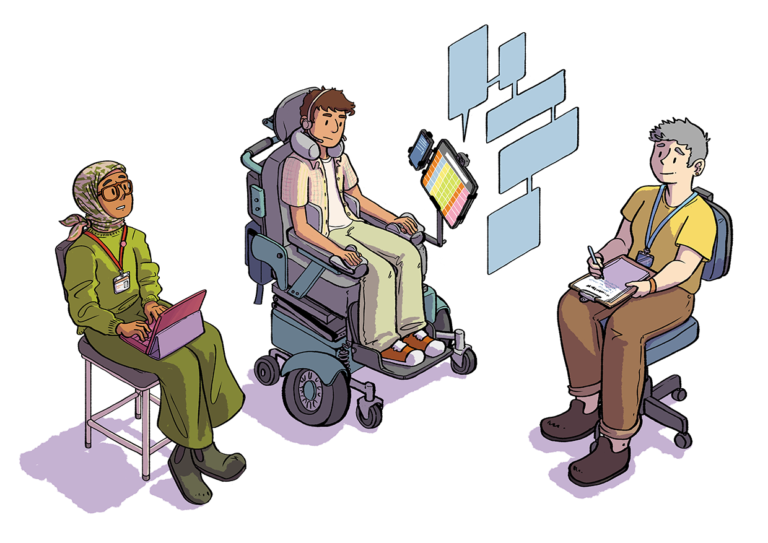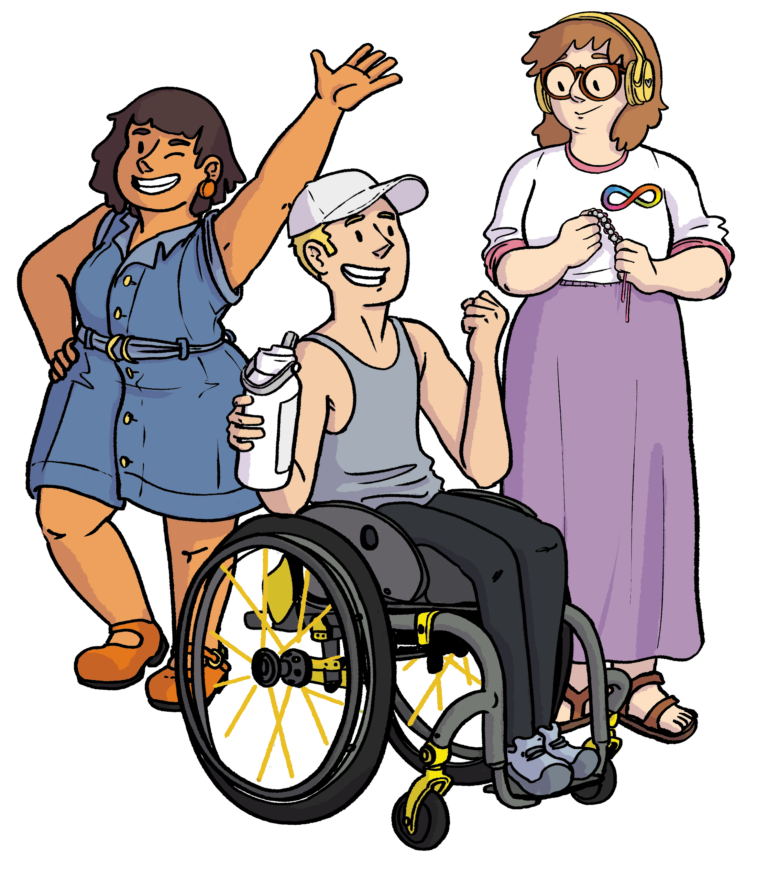How to follow the NDIS Code of Conduct when supporting disabled young people
All NDIS service providers and workers must follow the NDIS Code of Conduct.
On this page, you’ll find information, resources and tools to help you adhere to the NDIS Code of Conduct when supporting disabled young people.

What is the NDIS Code of Conduct?
The NDIS Code of Conduct sets out important rules that all NDIS workers and providers must follow.
These rules help make sure disabled people feel safe, respected, and supported when using NDIS services.
Watch this video from the NDIS Commission to learn more about your obligations under the NDIS Code of Conduct.
All NDIS providers and workers must understand and follow the NDIS Code of Conduct.
How to put the NDIS Code of Conduct into practice
Here’s how NDIS service providers and workers can put the NDIS Code of Conduct into practice when supporting disabled young people.
You must:
Disabled young people have the right to make choices about their lives, express themselves, and be treated with respect.
What you can do:
-
Listen to disabled young people and take what they say seriously. Make sure they feel safe to speak up if something is wrong.
-
Give them accessible and youth-friendly information to help them make decisions.
-
Respect their rights to privacy, freedom of expression and self-determination.
To learn more, visit our Disabled young people’s rights webpage.
Every young person should feel safe to raise concerns and have a say in decisions about their lives.
What you can do:
- Encourage young people to speak up for themselves.
- Support disabled young people in a way that is empowering and encourages their independence.
- Explain your organisation’s feedback and complaints processes in a youth-friendly way.
- Ensure disabled young people feel safe to speak up and raise concerns.
- Follow best practice ways to support disabled young people.
To learn more, visit our Communicating with disabled young people webpage.
Disabled young people deserve services that are safe, skilled, and meet their individual needs.
What you can do:
- Understand your responsibilities when supporting disabled young people and follow your organisation’s policies and safety procedures every time you work.
- Ongoing learning and training will improve your skills and help you stay up to date with best practice, so you can provide safe, respectful and professional support.
- Recognise that disabled young people are the experts in their own lives and know themselves best.
- Create safe, inclusive spaces where disabled young people feel respected and comfortable.
- Communicate clearly and check in regularly to make sure young people feel safe and heard.
Disabled young people deserve to have their concerns taken seriously.
What you can do:
-
Make it easy for young people to speak up if something is wrong.
-
Take every concern seriously—no matter how small it seems.
-
Listen without judgment and thank them for speaking up.
-
Follow your organisation’s complaints process and respond promptly.
-
Check in afterwards to make sure the young person feels safe and supported.
To learn more, visit the Complaints processes for disabled young people section of our website.
All children and young people have the right to feel and be safe. Disabled young people are at higher risk of abuse and neglect.
Keeping children and young people safe from harm is everyone’s responsibility.
What you can do:
-
Know the signs of harm and what to do if you’re worried.
-
Report any concerns using your organisation’s processes and contact relevant authorities.
-
Understand and follow child safety requirements in your state or territory, including mandatory reporting laws.
To learn more about your responsibilities and for comprehensive resources, visit our How to be a child safe NDIS service provider webpage.
Building trust is important, especially for young people who may not have felt heard in the past.
What you can do:
- Treat disabled young people with respect.
-
Be honest and clear in what you say and do.
-
Follow through on promises and explain any changes.
-
Admit mistakes and take responsibility for fixing them.

Reporting a Code breach
Anyone can make a complaint about NDIS supports and services, including alleged breaches of the NDIS Code of Conduct. This includes disabled people, family members, friends, workers, advocates and other providers.
If you see a breach of the NDIS Code of Conduct, you must report it to the NDIS Commission:
- Visit the NDIS Commission website
- Call 1800 035 544
You can raise concerns about any business, organisation or individual that operates within the NDIS.
All staff at an NDIS service provider should know how and when to report a breach of the Code.
Training and resources
All NDIS service providers and workers must understand and follow the NDIS Code of Conduct.
Check out the free training and resources below to understand your obligations and better support disabled young people.

NDIS worker training modules
The NDIS Commission has a series of free online training modules designed to help NDIS workers better support disabled people.
The NDIS worker orientation module is an interactive course for workers that explains the NDIS Code of Conduct from the perspective of NDIS participants.
The module will help you to understand:
- how the NDIS works and the role of the NDIS Commission
- your obligations under the NDIS Code of Conduct
- your role in achieving the vision of the NDIS.

NDIS Code of Conduct resource hub
The NDIS Commission has guides, videos and fact sheets to support NDIS service providers and workers to understand your obligations and follow the NDIS Code of Conduct.